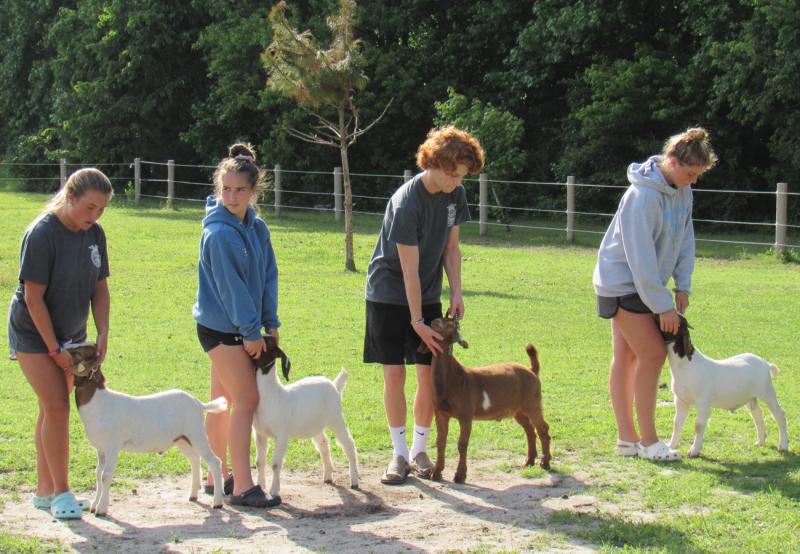Cape High’s animal science students are headed to market with their farm-raised meat goats.
Thanks to a $3,000 grant from Tractor Supply Company and the National FFA organization, Cape’s agriculture department expanded its animal science and FFA program to include goat marketing. Grant funds were used to install fencing and purchase goats, feed, leashes and equipment needed to show goats at market.
“Some students have shown pygmy goats, pigs and steer before, but not market goats,” said Cape animal science teacher Heather Valentine, who helps her parents operate Valhalla Farms where students’ goats are kept. “These goats are raised for their meat.”
Students will show their market goats at the Delaware State Fair in July, where goats will be judged on muscle, body structure and balance. “Judges will look to see how well students handle the goats,” Valentine explained. “Goats must be properly fitted and structurally correct, and the handlers must move around the animal and judges in certain ways.”
Goats that show well proceed to auction, where they sell for market rate, $10 to $30 a pound. Most goats sell for about $800, Valentine said. Proceeds will be split between the student and FFA, which will use profits to buy goats for next year’s class.
Students signed a $75 lease agreement with Valhalla Farms to cover fair registration costs, and all had to commit to caring for their goats. Some students received their goats in February, others in April, and all students had to halter break, brush and walk their goats and learn show-handling techniques. “The lease agreement also makes sure students are invested in caring for their animals,” Valentine said. “They have a rotating feeding schedule, and all students pick up shifts. Goats need to be fed every morning and evening, and students must work individually with their goats for at least 15 minutes a day.”
Goat meat is in high demand locally and can be found in butcher shops and select restaurants, Valentine said. While full-grown males can reach 200 pounds, Valentine said different ethnic markets prefer goats of certain weights. “The Greek market likes them less than 70 pounds, and the Roman market likes them a little heavier,” she said. “Hispanic and Jamaican markets prefer them larger, between 80 and 115 pounds. America is actually the only country that doesn’t consume goat milk and meat like the rest of the world.”






















































